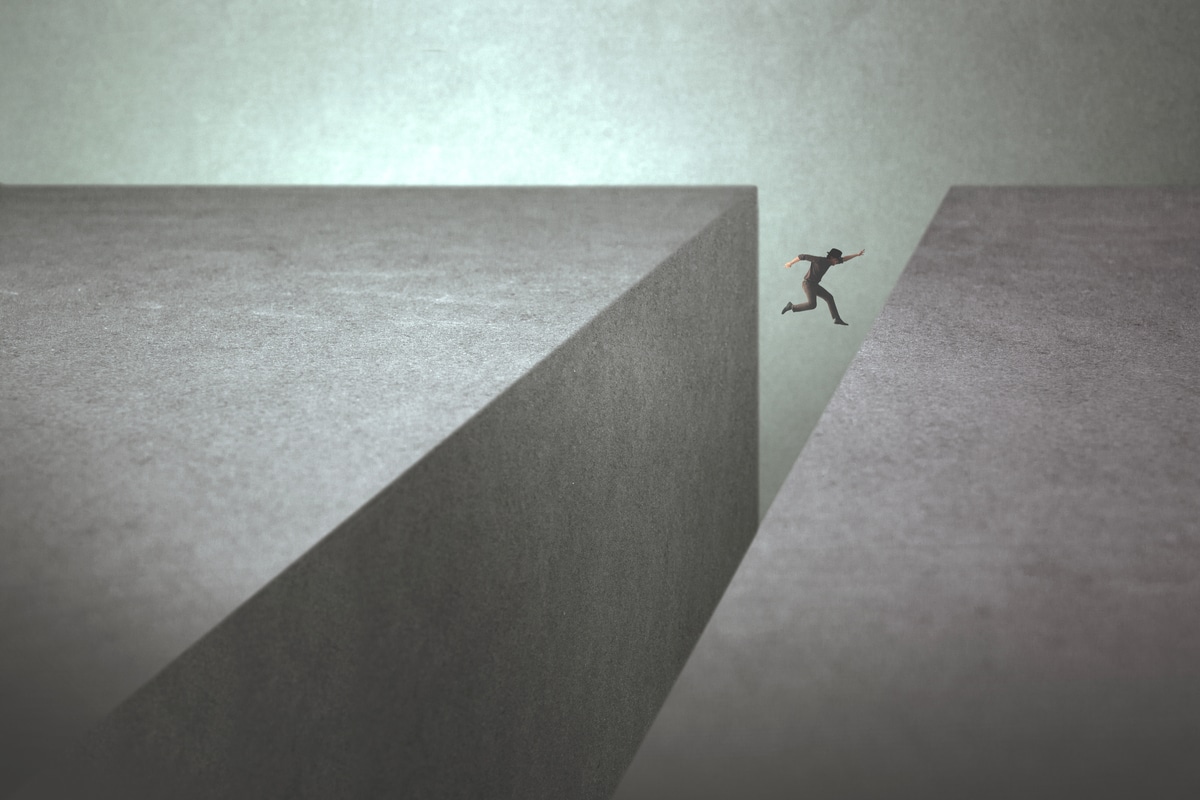We all face stress and anxiety at some point in our lives. It’s a normal part of life. However, when stress gets out of control, it can have a negative impact on our physical and mental health.
There are many things that can cause stress, such as work, family, finances, and health problems. But no matter what’s causing your stress, there are ways to manage it and relieve the symptoms.
This article will share 15 easy ways to let go of stress and feel better fast. We’ll also answer some common stress-related questions and provide resources for further reading.
So if you’re feeling overwhelmed, read on for some helpful tips on how to relieve stress and anxiety.
“In this life, we cannot do great things. We can only do small things with great love.”
Mother Teresa
How to Let Go of Stressful Thoughts: 15 Easy Steps
1. Identify the Source of Your Stress
The first step to managing stress is to identify what’s causing it. Once you know what’s causing your stress, you can start to find ways to deal with it.
There are many different sources of stress, such as work, family, finances, and health problems. If you’re unsure what’s causing your stress, try to think about what’s been going on in your life lately.
So how do you identify the source of your stress? Try to answer the following questions:
- What’s been going on in your life lately?
- What’s been bothering you?
- What are your worries and concerns?
- What’s been causing you to feel overwhelmed?
One easy way to identify the source of your stress is to keep a stress journal. For one week, write down everything that causes you stress. At the end of the week, look for patterns and common themes.
Once you know what’s causing your stress, you can start to find ways to deal with it.
2. Practice Deep Breathing Exercises
One of the quickest and easiest ways to relieve stress is to practice deep breathing exercises.
Your body’s stress response is influenced by your nervous system. The sympathetic nervous system is responsible for the “fight-or-flight” response. This is the body’s natural response to stress.
The opposite of the sympathetic nervous system is the parasympathetic nervous system. This part of the nervous system is responsible for the “rest and digest” response.
When stressed, your body is in a state of sympathetic arousal. This means that your heart rate and blood pressure are increased, and your body is in a state of heightened alertness.
Deep breathing exercises can help to activate the parasympathetic nervous system and promote the “rest and digest” response hence counteracting the physical sensations caused by stress.
There are many different deep breathing exercises you can try. From diaphragmatic breathing to belly breathing, there’s an exercise for everyone.
Here’s a simple deep breathing exercise you can try:
- Sit or lie down in a comfortable position
- Place one hand on your stomach and the other on your chest
- Breathe in slowly through your nose, allowing your stomach to expand
- Breathe out slowly through your mouth
- Repeat this exercise for 10-20 minutes
3. Exercise Regularly
Exercise is one of the best ways to reduce stress and improve overall health.
When you exercise, your body releases endorphins. Endorphins are hormones that have mood-boosting and pain-relieving effects. They can also help to reduce stress and anxiety.
In addition to endorphins, exercise also helps to reduce the levels of stress hormones in your body, such as cortisol. Cortisol is a hormone that’s released in response to stress. It’s often referred to as the “stress hormone.”
Physical exercise can also help to improve your sleep quality. Poor sleep is a common symptom of stress. Exercise can help to improve your sleep by reducing stress and anxiety.
You can try many different types of exercise, such as walking, running, biking, and yoga. Find an activity that you enjoy and make it a part of your regular stress relief routine.
4. Bring Yourself Into the Present Moment
One of the best ways to manage stress is to focus on the present moment. When you’re stressed, your mind is usually focused on the future or the past. This can cause you to feel overwhelmed and anxious.
Focusing on the present moment can help ground you and bring a sense of calm. It’s a simple but effective way to reduce stress at the moment.
There are many different ways to bring yourself into the present moment. One way is to focus on your breath. Another is to pay attention to your surroundings.
You can also try mindfulness meditation. Mindfulness meditation is a type of meditation that’s focused on present-moment awareness. It’s a simple but powerful way to reduce stress and anxiety.
To practice mindfulness meditation, find a comfortable place to sit or lie. Close your eyes and focus on your breath. Notice the sensation of your breath as it enters and exits your body.
Don’t try to control your breath. Just let it flow naturally. If your mind wanders, gently bring it back to the present moment.
Mindfulness meditation can be done for any amount of time. Even a few minutes can help let go of negative feelings and reduce stress.
5. Spend Time Outdoors
Spending time in nature is a great stress management technique. It can help reduce stress hormones, lower blood pressure, and improve your overall mood.
There’s something about being outdoors that just makes you feel better. Maybe it’s the fresh air or the sound of the wind. Whatever it is, spending time outdoors can help to reduce stress and improve your well-being.
If you can, spend at least 30 minutes outdoors every day. Take a walk in the park, go for a hike, or just sit in the sun. Let nature work its stress-relieving magic!
6. Practice Progressive Muscle Relaxation
Progressive muscle relaxation (PMR) is a stress management technique that involves tensing and relaxing different muscle groups in the body.
The goal of PMR is to produce a feeling of deep relaxation. You can practice PMR anywhere, at any time. You don’t need any special equipment or training.
To practice PMR, start by tensing your toes and feet muscles. Hold the tension for 5-10 seconds. Then, relax the muscles and feel the tension melt away.
Continue tensing and relaxing different muscle groups until you’ve gone through the entire body. The whole process should take about 10-20 minutes.
The key to a successful PMR session is to focus on the sensation of tension and relaxation. Pay attention to how your muscles feel when they’re tense and when they’re relaxed.
Also, make sure to breathe deeply throughout the process. Deep breathing helps to promote relaxation.
7. Listen to Relaxing Music
During stressful times, music can be a powerful stress management tool. Listening to relaxing music can help to lower your heart rate, slow your breathing, and reduce anxiety.
There are many different types of music that can help to reduce stress. It really depends on your personal preference. Some people find classical music relaxing, while others prefer nature sounds or ambient music.
Experiment with different types of music and see what works best for you. You can listen to music anytime, so it’s a great way to reduce stress throughout the day.
When listening to music, be sure to use headphones. This will help you focus on the music and block any distracting noises.
8. Get a Massage
A massage is a great way to reduce stress and promote a relaxation response. Massage therapy can help lower heart rate, blood pressure, and cortisol levels.
It can also help to reduce anxiety and improve sleep quality. If you’re feeling stressed, a massage may be just what you need.
9. Try Aromatherapy
Aromatherapy is an alternative medicine that uses aromatic essential oils to promote the health of the mind, body, and spirit.
Aromatherapy can be used in many different ways. The most popular method is to add a few drops of essential oil to a diffuser and inhale the fragrance. You can also apply essential oils topically or add them to your bathwater.
Many different essential oils can help to reduce stress and promote relaxation. Some of the most popular stress-relieving essential oils include lavender, chamomile, and ylang-ylang.
10. Let Go of Hate
You may not realize it, but hate is a very powerful emotion. Hatred can cause physical and emotional stress. It can also lead to anxiety, depression, and other mental health problems.
If you want to reduce mental stress in your life, it’s essential to let go of hatred. Forgive those who have wronged you and move on. Holding onto hate will only make you feel worse in the long run.
11. Talk to a Friend
Sometimes, the best way to reduce stress is to simply talk to someone about what’s going on in your life. Talking to a friend can help you take the weight off your shoulders.
It can also give you a different perspective on your situation. If you’re feeling stressed, reach out to a friend or family member and have a conversation.
12. Sleep
Most people don’t get enough sleep. Sleep is essential for physical and mental health. When you’re sleep-deprived, your body is under a lot of stress.
To reduce stress, it’s essential to get enough sleep. Most adults need 7-8 hours of sleep per night. If you’re not getting enough sleep, try to go to bed earlier or take a nap during the day.
Other sleep tips include:
- Establish a regular sleep schedule
- Create a relaxing bedtime routine
- Avoid caffeine and alcohol before bed
- Limit screen time before bed
13. Walk Out of Toxic Relationships
Toxic relationships can cause a lot of stress. If you’re in a relationship that’s making you unhappy, it’s time to walk away.
We understand that it’s not always easy to end a relationship. But what’s the point if the relationship is causing you more stress than joy? Let go of toxic relationships and surround yourself with people who make you feel good.
14. Laugh More
Haha, get it? Laughing is a great way to reduce stress. When you laugh, your body releases endorphins. As we mentioned before, endorphins are the body’s natural painkillers.
Laughter can also help to improve your immune system and reduce anxiety. If you’re feeling stressed, try to watch a funny movie or TV show. You can also spend time with friends who make you laugh.
15. Speak to a Healthcare Professional
If your stress levels are too much to handle, speak to a healthcare professional. Chronic stress can lead to serious health problems, including symptoms of constricted blood vessels, heart disease, and mental health disorders.
If you’re struggling to manage your stress levels, don’t hesitate to reach out to a healthcare professional. They can help you develop a treatment plan to reduce stress and improve your overall health.
Final Thoughts
These are just a few of the many ways to reduce stress in your life. Experiment with different stress-relief methods and find what works best for you. And, remember, it’s okay to ask for help if your stress levels are becoming too much to handle.
FAQs
What Triggers Stress Response?
When your brain perceives a threat, it triggers the stress response. The stress response is also known as the fight-or-flight response.
During the stress response, the hypothalamus (a region of the brain) releases a hormone called corticotropin-releasing hormone (CRH). CRH signals the pituitary gland to release another hormone called adrenocorticotropic hormone (ACTH). ACTH travels to the adrenal glands and signals them to release the stress hormone cortisol.
Cortisol prepares the body for a stressful situation by increasing heart rate, blood pressure, and blood sugar. Cortisol also suppresses the immune system.
What Are the 3 Outs for Dealing With Stress?
Avoidance, fight, and flight are the three main outs of dealing with stress.
Avoidance is when you try to avoid a stressful situation. For example, if you’re feeling overwhelmed at work, you may try to avoid your tasks by surfing the internet or taking a long lunch break.
Fight is when you confront a stressful situation. For example, if you’re feeling highly stressed about an upcoming test, you may study hard to prepare for it.
Flight is when you flee from a stressful situation. For example, if you’re in a situation that’s making you feel uncomfortable or unsafe, you may leave the area.
What Happens if You Stress Too Much?
Chronic stress can lead to several health problems. It can weaken the immune system, make it difficult to concentrate, and contribute to anxiety and depression. Chronic stress can also increase your risk for heart disease, high blood pressure, and stroke.
If you’re feeling overwhelmed by stress, it’s essential to seek help from a doctor or mental health professional. There are also several self-care strategies that can help you cope with your well-being.
What Are 5 Ways to Relieve Stress?
There are several ways to relieve stress. Some self-care strategies that can help include:
- Yoga: Yoga is a form of exercise that can help calm the mind and body.
- Meditation: Meditation is a practice that can help to focus and quiet the mind.
- Breathing exercises: Breathing exercises can help to relax the body and mind.
- Progressive muscle relaxation: Progressive muscle relaxation is a technique that can help reduce body tension.
- Visualization: Visualization is a technique that involves picturing calm and relaxing images in your mind.













